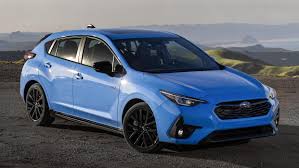In 2025, even brands with solid reputations haven’t escaped scrutiny—Consumer Reports and other industry watchdogs are flagging a few Japanese automakers for below-average reliability.
This article dives into three brands that have seen reliability slippage, explained the problems, and suggested what to watch for if you’re shopping or owning one.
1. Nissan – Struggling with CVTs and Consistency
Nissan dropped to #15 on Consumer Reports’ reliability list, scoring just 44/100 Two major issues:
- CVT gearbox failures: Common in models like the Sentra and Pathfinder, leading to early replacements.
- Electronics & fuel system troubles: Higher annual maintenance costs (~$500/year), resulting in an estimated $8,000 over 10 years
The first-gen Nissan Juke has become notorious, with repeated recalls and failures in its CVT, fuel system, and sensors . Should you avoid Nissan? Not all models are flawed—but crucially, CVT reliability remains a concern.
2. Mitsubishi – Lingering Quality Worries
Once embroiled in massive defect scandals, Mitsubishi still battles reliability issues. Scandals from the early 2000s, involving defective brakes, clutches, and fuel leaks, still stain its image
While newer models show improvement, Mitsubishi finished 2025 with 256 problems per 100 vehicles, ranking poorly compared to peers. Entry-level vehicles like the Mirage have especially weak reputations—critics called it “the worst new car you can buy”. Unless you’re buying ultra-affordable and don’t mind frequent visits to the shop, it’s wise to tread carefully.
3. Daihatsu – Latest Recall Woes
Recent news shook confidence in Daihatsu. In 2023, the company admitted falsifying crash-test data for over 88,000 vehicles . By early 2025, further recalls hit popular models like the Rocky/Raize—issues ranged from faulty airbag ECUs to brake booster faults .
Reliability data confirms Daihatsu’s low standing: with recalls piling up and trust shaken, their vehicles now place lower in J.D. Power and similar surveys. If you’re considering one, insist on full recall compliance and independent inspections.
What This Means for You
- Buyer beware: If you’re attracted to low prices on Nissan, Mitsubishi, or Daihatsu, get a detailed vehicle history, insist on a full mechanical inspection, and verify all recalls have been addressed.
- CVT concerns: Nissan’s troubles reinforce why many buyers now favor conventional automatics over CVTs.
- Safety over savings: Daihatsu’s test manipulations may not affect driving performance—but they raise questions about internal quality culture.
- Warranty is key: Extended or bumper-to-bumper warranties can mitigate costs from early issues.
More Reliable Japanese Alternatives
For comparison, other Japanese brands performed well in 2025 reliability studies:
- Mazda, Toyota, Lexus, Subaru, and Honda ranked strongly among Consumer Reports’ top reliable brands .
- Mazda landed in 3rd place PP100 (problems per 100 vehicles) in J.D. Power rankings—though some newer models like the CX‑50 show room for improvement .
If peace of mind is your top priority, these brands offer better long-term value and fewer repair headaches.
Final Takeaway
By 2025, Nissan, Mitsubishi, and Daihatsu stand out among Japanese brands for being the least reliable—facing mechanical faults, safety recalls, and consumer backlash. That said, every automaker has highs and lows: some models shine, others falter. The key for smart buyers and owners is to:
- Research specific models—not just brands.
- Check maintenance records and recall completion.
- Prefer proven mechanical systems.
- Extend warranties
Read More: Turbocharger Price in Pakistan – Complete Guide (2025)
In 2025, Nissan, Mitsubishi, and Daihatsu stand out as the least reliable Japanese car brands, based on recurring mechanical failures, scandals, and consumer dissatisfaction. While not every model is bad, buyers should proceed with caution and prioritize transparency, warranties, and third-party inspections. Remember, a reliable car isn’t just about brand—it’s about the right model, year, and maintenance record.
Read More: GiGi EV Charging & Performance in Pakistan – Complete Research (2025)









